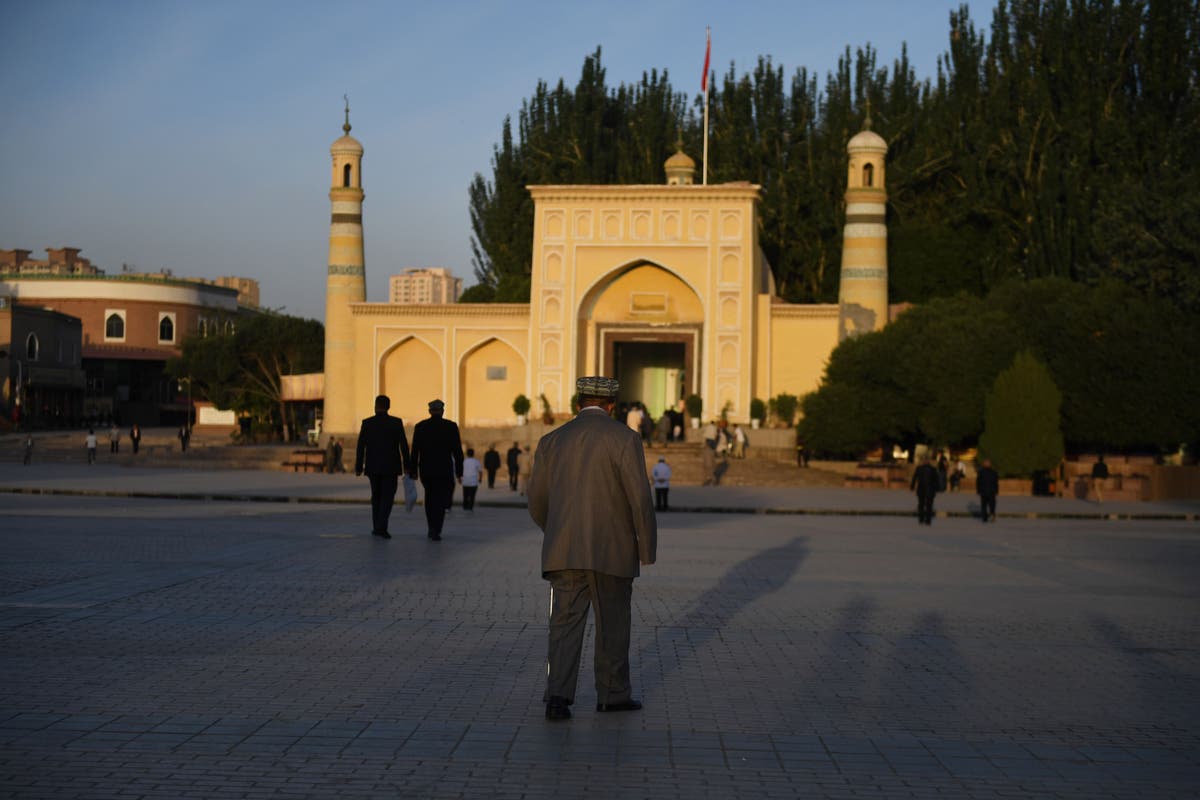
China has imprisoned or detained at least 630 imams and other Muslim religious figures on charges like propagating “extremism” as part of its crackdown in the Xinjiang region, a new study has found.
The research, compiled by the Uyghur Human Rights Project, looked at a dataset consisting of 1,046 cases of imams and other religious figures “detained for their association with religious teaching and community leadership” since 2014.
The research found that 18 clerics had died in either a prison or a camp, or shortly following their release.
Grounds for imprisonment in the cases included “illegal” religious teaching, separatism or extremism and officiating or preaching at weddings and funerals, according to the study entitled Islam Dispossessed.
It said that 41 per cent of the individuals in the dataset have been given prison sentences, illustrating “the intention of the Chinese government not just to criminalise religious expression or practice, but also to consider imams criminals by virtue of their profession”,
This is not the first time that researchers have highlighted the targeting of imams in Xinjiang by Chinese authorities.
Uyghur Hjelp, a Norway-based Uighur advocacy and aid organisation, told VOA in June last year that China has detained at least 518 key Uighur religious figures and imams since 2016.
The organisation also said that it found some of the imams, who were earlier trained and employed by China, are now sentenced to prison.
Abduweli Ayup, a Norway-based fellow at International Cities of Refuge Network, had also revealed last year that at least 613 imams were being held at detention camps in the region.
China has repeatedly been criticised for its treatment of Uighurs in Xinjiang. Foreign researchers have said more than 1 million people from predominantly Muslim ethnic minorities are held in detention camps across the region.
Chinese officials have rejected reports of abuses and insisted that the camps are for job training purposes.
The existing, and extremely rare, publicly available documents on detentions show how the authorities have linked ordinary religious expression in Xinjiang to extremism, according to BBC News.
Leaked documents last year showed that the Chinese government sees religion as a reason for detention. People can be sent to a detention facility for ordinary activities such as praying, attending a mosque, or even growing a long beard.
“It’s very clear that religious practice is being targeted,” Darren Byler, a University of Colorado researcher studying the use of surveillance technology in Xinjiang, told The Associated Press. “They want to fragment society, to pull the families apart and make them much more vulnerable to retraining and reeducation.”






